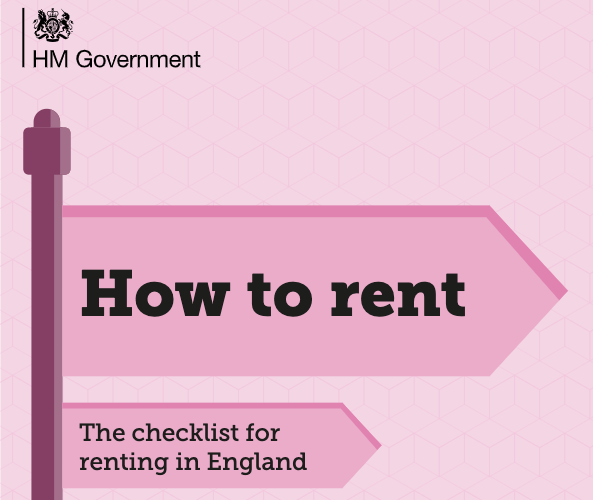Frequently Asked Questions
Everything you need to know about how DepositPass works for you.
DepositPass is a solution that allows landlords to enjoy high security over their properties at no cost, while also saving renters money on deposit security compared to traditional methods. Our solution provides peace of mind to landlords and helps renters avoid paying a large chunk of their savings just for security. By choosing DepositPass, you’ll benefit from a great solution that works for both landlords and renters.
With DepositPass, renters can easily find the best deposit solution by entering our platform and completing a step-by-step questionnaire. Our solution will guide you to the best deposit option that suits your needs. For landlords, simply register your properties and invite renters to use DepositPass to secure the full deposit cycle. By choosing DepositPass, both renters and landlords can enjoy a hassle-free experience.
Creating a Renter’s DepositPass account can help you save up to 35% on your rental security deposit compared to traditional methods. By using our platform, you’ll find the best solution to transfer your deposit, saving you time and money. With DepositPass, you can rest assured that you’ll be able to find a deposit solution that works for you, whether you’re renting now or in the future.
DepositPass provides landlords with a high response rate and better security in case of disputes, while also vetting renters to reduce the risk of issues. It’s free to use and allows landlords to recover renter charges. DepositPass also offers additional protection if agreed upon with the renter.
DepositPass ensures fairness and professionalism in handling disputes between renters and landlords through our partnership with MyDeposits. MyDeposits provides an independent and impartial dispute resolution service, with adjudicators who are experienced in Alternative Dispute Resolution (ADR) procedures. This means that disputes are handled efficiently and fairly, based on the issues in dispute and the evidence provided. As a customer, you can have complete confidence in the dispute resolution process, knowing that it is designed to protect your interests and provide a satisfactory outcome.
If your claim is successful and the renter is found liable, you can expect to receive the payout within 5 business days after the renter’s grace period has expired, if the required payments have not been made.
The policies that are assignable include endowments, whole life, life annuities, and investment bonds. If a renter is unsure whether their policy or that of a third-party is assignable, DepositPass can be contacted via email and request a review of the General Conditions and Insurance Cover of the policy. This service is provided by DepositPass at no cost to the renter.
General
Also called security deposit, it is the money that is paid to a landlord by a renter to help protect the landlord against possible financial loss. The renter’s deposit is held by the landlord during the term of the tenancy and refunded at the termination of the tenancy agreement.
In England no more than five weeks’ rent (refundable) is payable where the annual rent is less than £50,000, or six weeks’ rent where the annual rent exceeds £50,000.
There is no limit on the amount of deposit a landlord/agent can ask for in Northern Ireland.
In Scotland a deposit cannot exceed 2 months’ rent. Charging any more than 2 months’ rent for a deposit constitutes an illegal premium.
Usually, it is the equivalent of 1 month’s rent in Wales.
Start of tenancy
There are a few documents that your agent should provide you with at the beginning of your tenancy and these should include:
- How to rent guide
- Energy Performance Certificate
- Gas Safety Certificate
- Electrical Safety Certificate
- Instruction manuals for appliances such as the boiler
- Signed Tenancy Agreement
- Inventory or check-in report
We would encourage you to take time to read your check-in report/inventory and go around the property checking that the description of the items, condition of the decor and standard of cleaning is consistent with that which is stated. Usually, it will be a true representation of the property, but this is your opportunity to query any missing items or inconsistencies as you see them. If you find that, for example, the check-in report states that the oven is cleaned to a professional standard but that the grills are greasy, make a note on the inventory and report this to the landlord immediately. Often the landlord will ask you to return the inventory within 7 days and report any cleaning issues within 48 hours and it is important that you stick to any timescales given. While taking photographs is a good idea, it is difficult to establish cleanliness from a photograph, so while they can be great supporting evidence in some cases (for example the inside of an oven), the written description is key. It is impossible to photograph a smell, or something that is sticky, and taking a photograph of dust on a carpet can be equally tricky, so clear, concise wording describing the item is most useful. It can also be a good idea to pay special attention to areas which tend to have the most use or require the most cleaning, such as:
- The oven
- The shower/bath
- The fridge/freezer (this should also be defrosted)
- The windows
- The flooring
If you did not move into the property and the tenancy did not commence, please contact our team at info@depositpass.com
During tenancy
You will be in ‘rent arrears’ if you fall behind with your rent payments to your private landlord or agent.
Although dealing with rent arrears can be tough, you should take action as quickly as possible. If you ignore your arrears, the problem will only get worse.
See if you can agree to a repayment plan to pay off your rent arrears.
A repayment plan means you’ll make smaller payments to your landlord over a longer period of time. You will still have to pay everything back – but it could be easier than paying the full amount in one go.
Your landlord is generally responsible for keeping in repair:
- The structures and exterior of your home, for example, the walls, roof, foundations, drains, guttering and external pipes, windows and external doors
- Basins, sinks, baths, toilets and their pipework
- Water and gas pipes, electrical wiring, water tanks, boilers, radiators, gas fires, fitted electric fires or fitted heaters.
Your landlord can only make repairs when he/she knows there is a problem – so make sure you tell him/she about any repairs that are needed.
Tenants have a duty of care to promptly alert landlords to any areas of concern that may need repairing or replacing, such as when mould starts to appear. But who is responsible for mould during the tenancy? Typically, the response we usually see is that landlords are responsible when there is a fault with the building that caused the mould, for example, a leaky pipe. Tenants are responsible for housekeeping and if the mould develops during their tenancy i.e., was not present at the beginning of the tenancy and was not as the result of a fault with the property, it may be down to lifestyle. However, this is not always the case, and every case should be considered based on the evidence provided. You should seek legal advice if you wish to know the likelihood of a result in your individual case.
You don’t have to pay a penny more than our standard membership fee. As always, you’re expected to treat your rented accommodation with care and to cover the cost of any damages at the end of your tenancy. Please also remember that pets should only ever be kept in accommodation where they are expressly allowed.
If you have any issues during your tenancy, you should contact your landlord or managing agent as soon as possible to report them.
End of tenancy
Once you have vacated the property at the end of your tenancy, your landlord releases you or the 3rd party who provided the life insurance savings plan (policy) from the deed of assignment signed at the start of the tenancy.
Yes. In this case we offer you a discount of up to 20% on the payable fee.
There are no early termination charges to DepositPass if your tenancy ends earlier than expected. However, if you need to leave before the end of your tenancy, your landlord or agent could charge an ‘early termination’ fee to cover any reasonable costs. For example, rent up to the end of your fixed tenancy period or costs to find a new tenant. It is important that you speak to your agent or landlord to discuss this with them directly.
Once your tenancy has ended you should request a copy of the check-out report/inventory ASAP. If the check-out report is inaccurate, you should note these issues and submit them to your landlord or agent in writing so they can be added to the report.
If you and your landlord go into a dispute over damages or cleaning, the inventory will be the most significant piece of evidence. Knowing the standard of the property at the start of your tenancy helps to set clear expectations of the maintenance required of you. Inventories also help safeguard tenants against unfair charges when moving out of a property.
At the end of your tenancy your landlord or agent can charge you if you have broken the terms of your tenancy agreement. Common reasons for deduction include:
- Cleaning
- Damage
- Redecoration
- Unpaid rent
- Gardening
The landlord can only claim to restore any issues in the property to the position they would have been in had you met the terms of your tenancy agreement. The normal decline in the condition of the property and its contents (known as wear and tear) cannot be charged to the tenant and must be factored into the amount charged for repairs, redecoration or replacements.
DepositPass provides landlords with a high response rate and better security in case of disputes, while also vetting renters to reduce the risk of issues. It’s free to use and allows landlords to recover renter charges. DepositPass also offers additional protection if agreed upon with the renter.
Yes. In cases where tenants haven’t paid landlords for proven charges, the assigned amount of the life insurance savings plan (policy) can be drawn upon.
It is completely free for landlords.
DepositPass is paid for by your renter, it is free totally for landlords.
DepositPass can be offered to your renters by simply signing up online.
Any property, from residential to commercial ones.
| Tenancy | Description | Covered? |
| Assured Shorthold Tenancy (AST) | In England and Wales | Yes |
| Private Residential Tenancy (PRT) | In Scotland | Yes |
| Northern Irish Tenancies | Any tenancy subject to the Privacy Tenancy (Northern Ireland) Order 2006 | Yes |
| House of Multiple Occupancies (HMO) | Properties where tenants live in the same house or building under separate tenancy agreements | Yes |
| Tenancies for Lodgers | Where you live with your landloard | Yes |
| Tenancies with Companies as the Tenant | If a company rents the property | Yes |
You are covered for financial loss or damage for which your tenants are liable under your Tenancy Agreement, up to the value of the number of weeks’ rent you have previously agreed upon with the tenant.
There are two ways that your tenancy agreement can be amended, by either adding the standard terms or a side letter can be used to accompany the agreement.
DepositPass expires simultaneously with the tenancy end date. This can be extended at any time free of charge for you.
You release the renter or 3rd party who provided the life insurance savings plan (policy) from the deed of assignment signed at the start of the tenancy.
Your tenants remain liable for any financial loss or damage as set out in your tenancy agreement.
If you believe there is any financial loss or damage caused by your tenants under their tenancy agreement, and they have failed to reach a settlement directly with their landlord (it is a requirement of the guarantee that direct settlement has been attempted), they can notify us of this and request to make a claim. If at the end of the tenancy we become aware that payment has not been made to you by the tenant in settlement of any financial loss or damage, we will assume that a claim has been made.
DepositPass provides customers with a highly experienced and professional dispute resolution mechanism through the use of independent adjudicators who belong to the Chartered Institute of Arbitrators and comply with their Adjudicator Code of Conduct. This means that disputes are handled efficiently and fairly based on the issues in dispute and the evidence provided. As a customer, you may have complete confidence in the dispute resolution process, knowing that it is designed to protect your interests and provide a satisfactory outcome.
After you have given at least 5 business days’ grace in writing to the tenant and this period has expired without the tenant having made the payments due.
Working with DepositPass saves you time, attracts renters, protects landlords and gives you a competitive edge in the marketplace. Properties where the no deposit option is offered, if previously agreed with the renter, are more appealing to renters, while landlords appreciate the extra financial protection. As a DepositPass partner agent you will also earn commission for every introduction that leads to a DepositPass purchase. Find out more about becoming a partner by visiting the agent page on our website.
DepositPass provides cover against financial loss or damage suffered by the landlord, including unpaid rent or damage to the property for which the renter is liable under the tenancy agreement.
By offering a DepositPass on their property, your landlord will benefit from increased demand for their properties, a wider range of tenants and void periods will be reduced. This could provide landlords with greater protection than a cash deposit.
If you would like to become a DepositPass partner agent, simply visit the Agent section of our website and click on “Get Started”, after which you will be asked to submit a few details. Once you have sent in your partnership enquiry, we will be in touch as soon as possible with more information about joining DepositPass.
We keep our onboarding process as easy as possible. All we need is:
- Details about who wants to partner with us
- Your privacy notice
- Someone who is our main point of contact
- A secure business domain email address for our portal
We do background checks which you will need to agree to as part of our onboarding process.
There are written rules about what an Introducer can and cannot do, but they are very simple and we can talk you through how this works in our training.
Any tenant who owns an assignable life insurance savings plan (policy) or can provide one from a 3rd party like mom and dad, spouse, relatives, friends or any other person.
Any property, from residential to commercial ones.
| Tenancy | Description | Covered? |
| Assured Shorthold Tenancy (AST) | In England and Wales | Yes |
| Private Residential Tenancy (PRT) | In Scotland | Yes |
| Northern Irish Tenancies | Any tenancy subject to the Privacy Tenancy (Northern Ireland) Order 2006 | Yes |
| House of Multiple Occupancies (HMO) | Properties where tenants live in the same house or building under separate tenancy agreements | Yes |
| Tenancies for Lodgers | Where you live with your landloard | Yes |
| Tenancies with Companies as the Tenant | If a company rents the property | Yes |
Yes! In cases where tenants haven’t paid landlords for proven charges, the assigned amount of the life insurance savings plan (policy) can be drawn upon by the landlord.
Renters have to be offered the choice of either a cash deposit or a DepositPass; however, many of our agents agree with their landlords that our cashless solution is very appealing to tenants.
It is completely free for agents.
DepositPass is paid for by your renter, it is totally free for landlords and agents.
Our Partner Agents earn a commission for every introduction that leads to a DepositPass purchase according to this table.
Amount of | Letting Agent Commission |
£0 to £500 | £50 |
> £500 to £1,000 | £60 |
> £1,000 to £2,000 | £70 |
> £2,000 to £4,000 | £80 |
> £4,000 to £7,000 | £90 |
> £7,000 to £10,000 | £100 |
It costs nothing to cancel a DepositPass as no cancellation fee is applicable.
There are two ways that our terms can de added into your tenancy agreement, by either adding the standard terms or a side letter can be used to accompany the agreement.
If you wish to book training with us, please contact us on info@depositpass.com
As with any other tenancy, when a renter moves out you need to go through the process of getting an independent check-out inventory and discussing any outstanding issues with both landlord and tenants. You also need to let us know that the tenancy has ended. Once the renter has vacated the property at the end of the tenancy, the landlord releases him/her or the 3rd party who provided the life insurance savings plan (policy) from the deed of assignment signed at the start of the tenancy.

Essential Checklist for Renting in the UK
Ensure you’re fully prepared for the renting process in the UK with this comprehensive checklist from the Department for Levelling Up, Housing and Communities and Ministry of Housing, Communities & Local Government. Don’t overlook any crucial steps when renting your next home!

